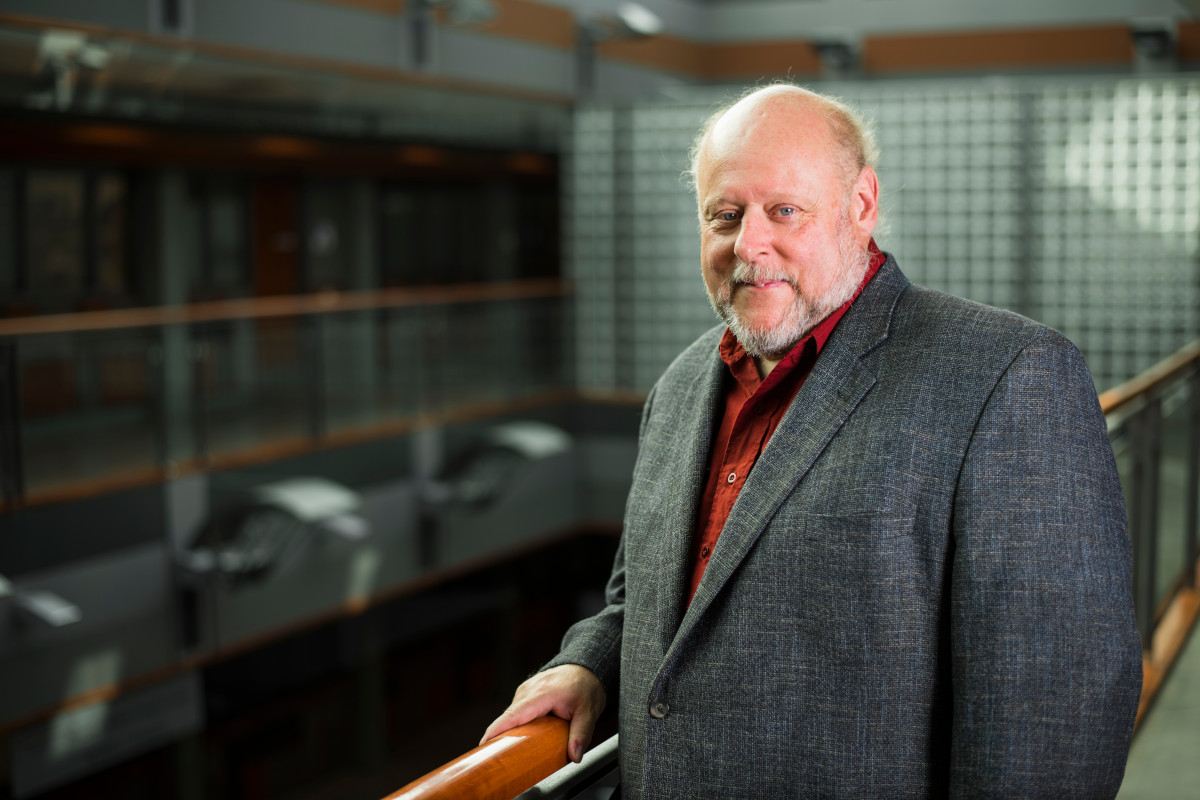
Pierre Boulanger, professor in the Department of Computing Science, is leading development of a virtual assessment tool that could help reduce spread of COVID-19. Photo credit: John Ulan
A virtual assessment tool developed by University of Alberta computing scientists has the potential to help flatten the curve of the COVID-19 pandemic.
The tool—called MedROAD—uses the power of artificial intelligence (AI) and cloud-based computing to remotely assess patients, eliminating the need for many to seek in-person care at clinics or in hospitals. MedROAD was developed out of the Advanced Man Machine Interface (AMMI) Laboratory at the University of Alberta, under the leadership of Pierre Boulanger, professor in the Department of Computing Science and Cisco Research Chair in Healthcare Solutions. MedROAD is now a project by Naiad Lab, a spinoff company with the mission of bringing technology from the lab into our world.
“The MedROAD system is a medical-grade virtual clinic that allows patients and doctors to conduct appointments remotely,” explained Esmatullah Naikyar, director and CEO of Naiad Lab.
“On the patient’s side, there is an Android app that collects data from portable medical-grade devices and sends it to a cloud-based server. The physician can then see this data and communicate with other users via video conference.”
MedROAD was originally developed to support remote communities with limited access to health services—specifically communities in Northern Canada and rural areas of Mexico. And as a result of its focus on remote delivery, the system is naturally tailored to address the COVID-19 pandemic.
“With the current COVID-19 pandemic, distance between patients and healthcare providers is not only desired but essential to mitigate the spread of the virus and to flatten the curve,” said Boulanger. “MedROAD applies big data analytics on collected patient information. Personalized feedback and alerts are created for specific patients with high risk. Physicians can monitor their patients through video conferencing and receive daily check-ins for COVID-19 positive patients in isolation. The aggregated real-time data allows officials to make informed decisions at critical times to respond to the rapidly spreading virus.”
The research team is working closely with a handful of clinics and one long-term care facility in Edmonton to deploy MedROAD to allow physicians working at home to monitor consenting, at-risk patients. And continuing with their original purpose, the team also is also working with health officials in Mexico to bring MedROAD to some of their jurisdictions.
The MedROAD project is funded by Cisco Canada, and is part of a partnership with the University of Alberta that is designed to advance research, development, and innovation in technologies that improve health care and save lives.
“If it wasn’t for CISCO’s initiative, I do not think we would have had proper funding to drive the project,” added Naikyar. “They have set an exceptional example of industry funded research that enables educational institutions to advance and create spinoff companies.”
Learn how University of Alberta-led research is supporting global efforts against the COVID-19 pandemic on the University of Alberta COVID-19 research hub.
Students, faculty, and staff can stay up-to-date with the latest information on COVID-19 for the campus community online.